Poultry egg prices have fallen to rock bottom since the Lunar New Year. With prices now at only 1,000 - 1,200 VND per chicken egg sold at the farm, many farmers said they are losing money, the more they raise, the more they lose. The basic reason is the imbalance between supply and demand of agricultural products, with supply being higher than market demand. This is a difficult problem, requiring the support of all levels and sectors to solve the problem of "good harvest, low price" for farmers.
Every day, Mr. Ngo Van Cao sells nearly 42,000 eggs to the market.
Bear the loss
Farmer Ngo Van Cao's chicken farm in Tay Phong commune (Tien Hai) is raising nearly 47,000 white and red chickens, selling nearly 42,000 eggs every day. But currently, the price of eggs is only 1,000 - 1,200 VND/egg, causing the family to lose 5 - 7 million VND/day.
Mr. Cao shared: Every year, at the beginning of the new year, the price of chicken eggs will decrease, but after January, it will gradually stabilize and increase again. But from the beginning of 2024 until now, due to the economic recession, the prolonged military conflict between Russia and Ukraine has affected companies, businesses, and production facilities, forcing them to cut staff and reduce working hours, causing the egg market for collective kitchens to also be cut. Many households are forced to sell eggs at people's markets and at the same time have to lower prices in order to sell their products. Raising livestock is different from growing vegetables, each batch of laying hens produces eggs for a long time, so we have to accept profits and losses. At a time when egg prices are low like now, we can only accept losses and wait for prices to increase, but we cannot reduce the flock or cut down on feed.
Also in a difficult situation, farmer Pham Van Trang, Vu Doai commune (Vu Thu) is currently having to reduce the number of chickens to minimize losses. He said: I am currently raising more than 11,000 laying hens, selling 6,000 - 7,000 eggs to the market every day. Since the beginning of 2024, traders have come to buy less because egg prices have decreased, not only farmers have to struggle to compensate for losses but traders are also in the same situation but do not know who to complain to. I hope that agencies and organizations will support product consumption to help farmers overcome this difficult period.
Mr. Tran Van Pha, Duong Hong Thuy commune (Thai Thuy) shared: My family used to raise egg-laying chickens to sell to businesses. But when the Covid-19 epidemic broke out and affected the economy , the world situation had many complicated developments, businesses were slow to produce, workers had to cut back, causing egg consumption to also decrease. Due to low economic efficiency, I had to switch to raising Luong Phuong chickens for delicious meat and eggs to maintain farming, minimizing economic losses.
According to the reporter's records, the current price of chicken eggs sold at the farm is fluctuating at 1,000 - 1,200 VND/egg, when reaching consumers, the price is from 2,200 - 2,500 VND/egg and farmers must sell at an average price of 1,800 VND/egg at the farm to make a profit.
Ms. Do Thi Khuyen, Kien An district (Hai Phong), who specializes in purchasing chicken eggs in Thai Binh province, also expressed concern when egg prices dropped sharply. She said: Currently, the price of buying eggs at the barn is quite cheap, changing every day also makes our purchasing difficult. There are days when I lose about 10 million VND due to the sharp drop in egg prices.
Story of linkage in production
While chicken farm owners are struggling to bear losses due to falling egg prices, Dong Xuyen General Livestock Cooperative (Tien Hai) with Dong Xuyen sea duck eggs is still selling at stable prices, not enough to supply customers.
Mr. Ngo Van Duan, Director of the Cooperative, said: Currently, the price of duck eggs is usually sold in the market from 2,400 - 2,500 VND/egg, but with Dong Xuyen sea duck eggs that have achieved 4-star OCOP certification, the selling price is from 6,500 - 8,000 VND/egg. To maintain that price, the Cooperative must do a good job of forecasting the market situation every year, especially after the Lunar New Year; develop a suitable herd restoration plan for member households; ensure to maintain affordable prices for medicine and animal feed so that members can feel secure in production. In addition, maintaining product quality also plays a key role in penetrating the market, especially bringing eggs to be consumed in supermarkets and large chain stores.

Mr. Ngo Van Duan always focuses on building a brand for Dong Xuyen sea duck egg products, so the selling price is stable.
Sharing the same opinion with Mr. Duan, Mr. Nguyen Van Thoa, Head of the Thoa Tuyet Poultry Breeding and Production Cooperative, Thuy Viet Commune (Thai Thuy) shared: The cooperative currently has 16 members in 16 communes in the district, linked in production with a total flock of more than 60,000 chickens. Every day, my family imports from members 4,000 - 5,000 chicken eggs to hatch at a price of 3,000 - 3,500 VND/egg. Although I have to compensate for the loss, I still have to import because I committed to the egg price from the beginning and to maintain the activities of the members. In addition to the 5,000 eggs imported every day, the remaining eggs from the households will be used to incubate eggs for breeding to serve the flock restoration. According to my experience in raising chickens, every 3 - 4 years the price of chicken eggs will drop deeply once, especially at the beginning of the new year. The main reason is the imbalance between supply and demand, people produce spontaneously, without connection, and are forced to lower prices by traders.
From the production and consumption linkage model of Thoa Tuyet Cooperative and Dong Xuyen General Livestock Cooperative, it can be seen that if farmers maintain sustainable production linkages, not only chicken eggs will not be forced to lower prices, but all agricultural products of farmers will maintain stable prices, farmers will control the price, not traders. In addition, forecasting the situation and market demand to have a production plan for each crop is also very important, requiring farmers to closely link, provide timely information, and avoid losses such as the current low price of chicken eggs.
There are currently many poultry farming models in the province, but they are mainly small-scale, household-based, and have not yet built product brands or traced their origins. There are not many chicken and duck egg products that have been certified by OCOP. Farmers still maintain the concept of "sometimes this, sometimes that" production, depending on the market, not proactively finding outlets for their products, and paying little attention to building and enhancing the brand of their products, so they always face many risks. The sharp drop in egg prices after Tet is not a new story, but happens almost every year. However, finding a stable output is still a difficult problem for farmers today. This situation shows that it is time for farmers in general, and poultry farmers in particular, to pay attention to building brands and participating in production-consumption chains to reduce input costs as well as minimize the impact of market instability.
To limit the situation of "good harvest, low price" in production, the agricultural sector is currently focusing on solutions to develop large-scale livestock farming, forming concentrated, disease-free livestock farming areas and good environmental management; raising livestock by organic and ecological methods. At the same time, organizations and individuals are encouraged to participate in closed production, linking stages in the value chain to reduce production costs, increase added value, develop sustainably and increase product competitiveness.
According to Mr. Le Hong Son, Chairman of the Provincial Farmers' Association: In the coming time, the Provincial Farmers' Association will step up propaganda to help members grasp the laws of production according to the market mechanism, thereby ensuring production to always balance supply and demand, and profitable production costs. The Provincial Farmers' Association has signed a coordination program with the Provincial Cooperative Union and assigned targets to the Farmers' Associations of districts and cities to establish 80 new cooperative groups and 8 new-style cooperatives in the whole province for members to produce and do business together. In particular, the new-style cooperatives will gather members to produce the same product so that they can link together in building production plans, help each other with capital, seeds, and techniques, contributing to ensuring good market demand, minimizing the situation of "good harvest, low price".

The model of linking egg production and consumption of farmer Nguyen Van Thoa brings sustainable efficiency.
Tien Dat - Nguyen Trieu
Source




![[Photo] Urgently help people soon have a place to live and stabilize their lives](/_next/image?url=https%3A%2F%2Fvphoto.vietnam.vn%2Fthumb%2F1200x675%2Fvietnam%2Fresource%2FIMAGE%2F2025%2F12%2F09%2F1765248230297_c-jpg.webp&w=3840&q=75)




































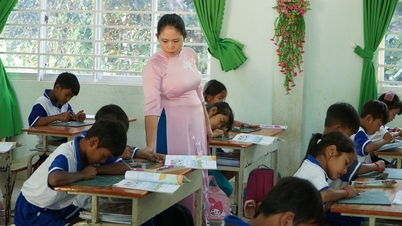
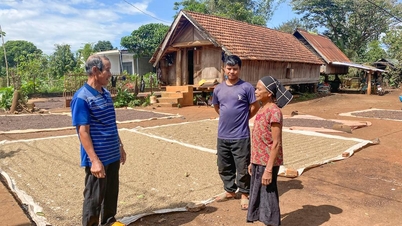





























![[Photo] General Secretary To Lam works with the Standing Committees of the 14th Party Congress Subcommittees](https://vphoto.vietnam.vn/thumb/402x226/vietnam/resource/IMAGE/2025/12/09/1765265023554_image.jpeg)









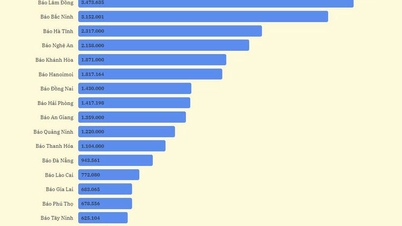



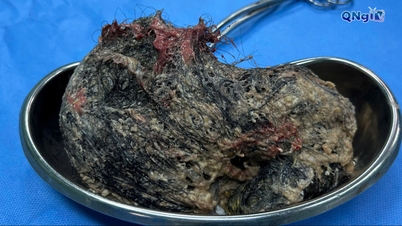




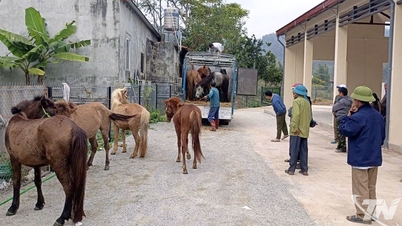















Comment (0)